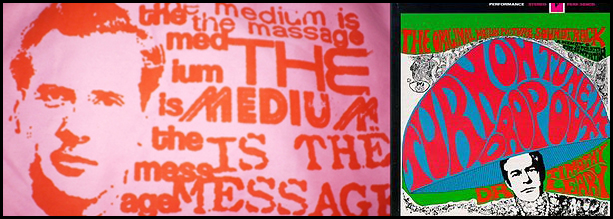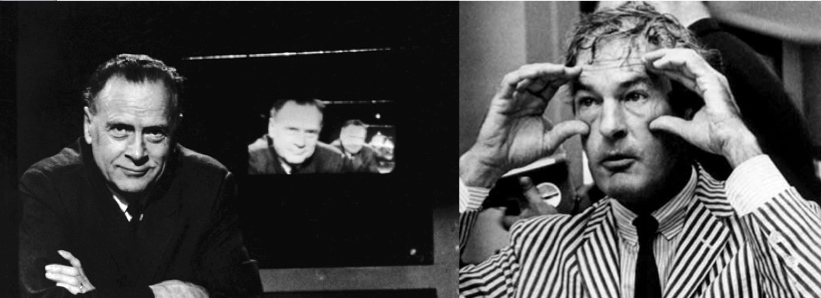Michael Horowitz and I decided to continue the story about Timothy Leary and Marshall McLuhan, and their unique friendship.
Leary, McLuhan and Electronic Technology
From the post:
Marshall McLuhan, media theorist and philosopher of electronic technology, had a stronger and more lasting influence on Leary than any other of Tim’s contemporaries. McLuhan “predicted the World Wide Web–the ‘Global Village’–almost thirty years before it was invented” (Paul Levinson, Digital McLuhan: A Guide to the Information Millenium). McLuhan wrote: “The right-brain hemisphere thinking is the capability of being in many places at the same time. Electricity is acoustic. It is simultaneously everywhere.”
Leary, for whom “the medium is the message” was the single most potent meme that came out of the ‘60s, fully embraced McLuhan’s concept of the Global Village as the natural evolution of the new media technology. With the launch of the personal computer revolution, Leary famously said: “The PC is the LSD of the ‘90s.” He lived long enough to have one of the earliest personal websites.

